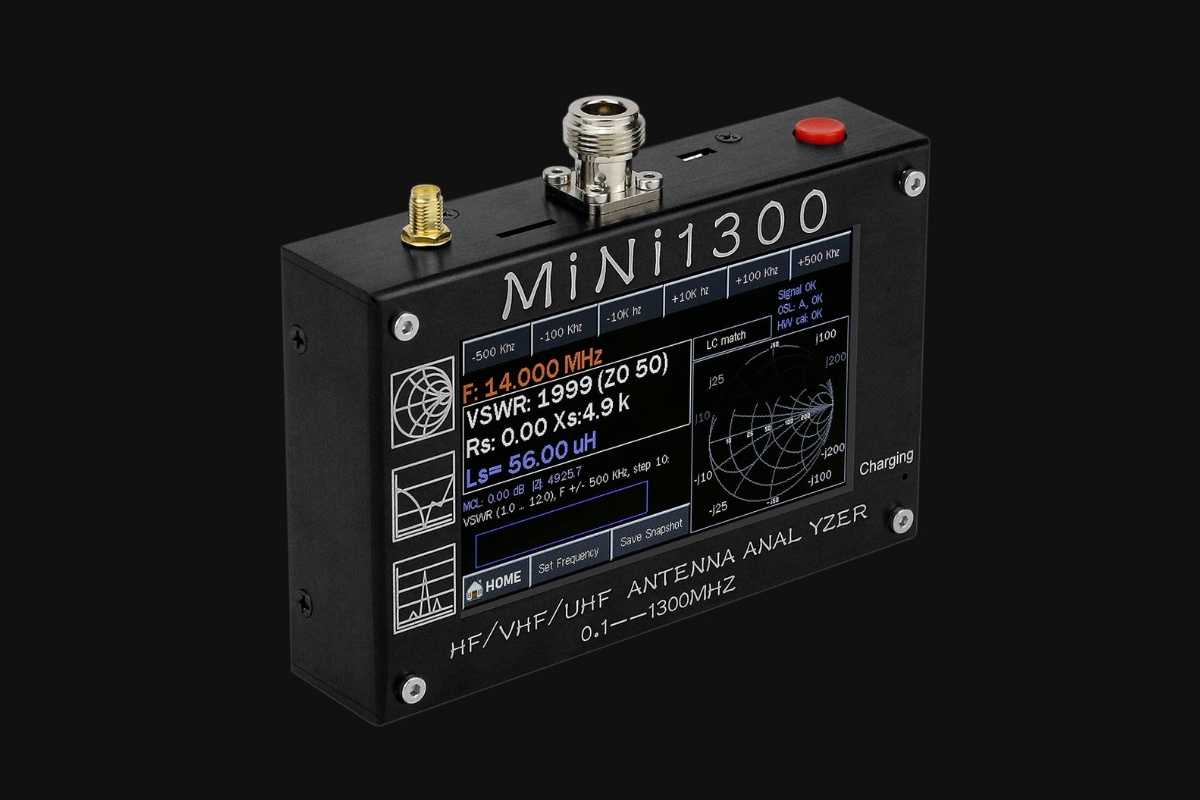
What is an antenna analyzer? An antenna analyzer is a handy tool for anyone working with radio frequencies. It measures the performance of antennas, helping to ensure they are tuned correctly for optimal signal transmission and reception. This device can check parameters like impedance, SWR (Standing Wave Ratio), and resonance. Whether you're a ham radio enthusiast, a professional technician, or just curious about how antennas work, an antenna analyzer can make your life easier. Imagine trying to set up a radio station without knowing if your antenna is working properly. That's where this tool comes in, saving time and reducing frustration.
What is an Antenna Analyzer?
An antenna analyzer is a device used by radio enthusiasts and professionals to measure the performance of antennas. It helps in tuning and troubleshooting antennas to ensure they operate efficiently. Here are some fascinating facts about antenna analyzers.
-
Antenna analyzers measure impedance. Impedance is the resistance of an antenna to the flow of electrical current. It is crucial for ensuring the antenna works efficiently.
-
They can detect SWR (Standing Wave Ratio). SWR is a measure of how well the antenna is matched to the transmission line. A low SWR indicates better performance.
-
Portable models exist. Many antenna analyzers are compact and portable, making them easy to carry to different locations for fieldwork.
How Do Antenna Analyzers Work?
Understanding the working principles of antenna analyzers can help in using them effectively. They operate by sending a signal through the antenna and measuring the response.
-
They generate RF signals. The analyzer sends out radio frequency signals to test the antenna's response.
-
They measure reflected signals. By analyzing the signals reflected back from the antenna, the device can determine its efficiency.
-
They use a bridge circuit. This circuit helps in comparing the transmitted and received signals to calculate impedance and SWR.
Types of Antenna Analyzers
Different types of antenna analyzers cater to various needs and applications. Knowing the types can help in choosing the right one.
-
Vector Network Analyzers (VNAs). These are advanced analyzers that provide detailed information about the antenna's performance.
-
Scalar Network Analyzers. These are simpler and measure only the magnitude of the signal, not the phase.
-
Handheld Analyzers. These are portable and user-friendly, ideal for fieldwork and quick tests.
Applications of Antenna Analyzers
Antenna analyzers are used in various fields, from amateur radio to professional telecommunications. Their versatility makes them indispensable tools.
-
Amateur radio. Hobbyists use them to tune and optimize their antennas for better communication.
-
Broadcasting. Broadcasters ensure their antennas are working efficiently to provide clear signals.
-
Military. The military uses them to maintain reliable communication systems.
Benefits of Using Antenna Analyzers
Using an antenna analyzer offers several advantages, making it a valuable tool for anyone working with antennas.
-
Improved performance. Regular use ensures antennas are always operating at their best.
-
Time-saving. Quickly identifies issues, saving time on troubleshooting.
-
Cost-effective. Prevents damage to equipment by ensuring proper antenna function.
Key Features to Look For
When choosing an antenna analyzer, certain features can make a significant difference in usability and effectiveness.
-
Frequency range. A wide frequency range allows testing of various antennas.
-
Display type. Clear, easy-to-read displays make interpreting results simpler.
-
Battery life. Long battery life is essential for fieldwork.
Common Issues and Troubleshooting
Even the best antenna analyzers can encounter problems. Knowing common issues and how to troubleshoot them can save time and frustration.
-
Calibration errors. Regular calibration ensures accurate readings.
-
Connection problems. Secure connections are vital for reliable measurements.
-
Software glitches. Keeping the device's software updated can prevent many issues.
Innovations in Antenna Analyzers
Technology is always advancing, and antenna analyzers are no exception. Recent innovations have made these devices more powerful and user-friendly.
-
Bluetooth connectivity. Some models now offer Bluetooth for wireless data transfer.
-
Smartphone integration. Apps can enhance functionality and provide additional features.
-
Enhanced data storage. Modern analyzers can store more data for detailed analysis.
Tips for Using Antenna Analyzers
Maximizing the benefits of an antenna analyzer requires some know-how. Here are a few tips to get the most out of your device.
-
Read the manual. Understanding the device's features and functions is crucial.
-
Regular maintenance. Keeping the analyzer clean and well-maintained ensures longevity and accuracy.
Final Thoughts on Antenna Analyzers
Antenna analyzers are game-changers for anyone serious about radio communication. They help you fine-tune your setup, ensuring you get the best signal possible. Whether you're a ham radio enthusiast or a professional, these devices save you time and frustration. They measure impedance, SWR, and other critical parameters, making sure your antenna is performing at its peak.
Investing in a good antenna analyzer can make a world of difference. You'll avoid common pitfalls like signal loss and interference. Plus, you'll have the satisfaction of knowing your equipment is optimized. So, if you're looking to improve your radio communication, an antenna analyzer is a must-have tool. It's not just about getting the job done; it's about doing it right. Happy tuning!
Was this page helpful?
Our commitment to delivering trustworthy and engaging content is at the heart of what we do. Each fact on our site is contributed by real users like you, bringing a wealth of diverse insights and information. To ensure the highest standards of accuracy and reliability, our dedicated editors meticulously review each submission. This process guarantees that the facts we share are not only fascinating but also credible. Trust in our commitment to quality and authenticity as you explore and learn with us.
